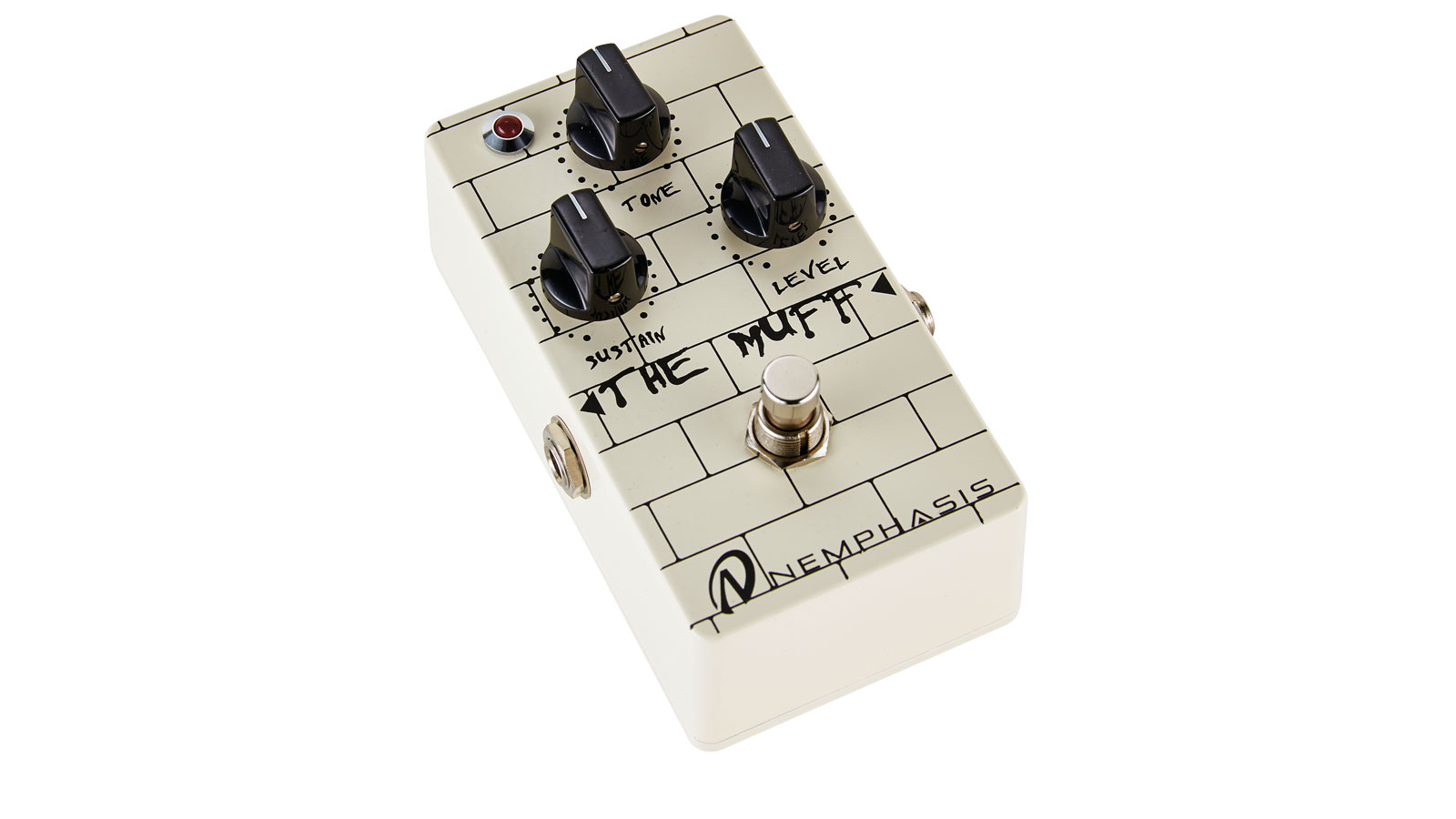MusicRadar Verdict
Familiar name, familiar sound, enhanced features.
Pros
- +
Nice recreation of the classic Big Muff-style tones. Extra features. Robust build. Nice artwork.
Cons
- -
Fat mode is a little murky-sounding. A real Big Muff costs less.
MusicRadar's got your back
No guesses for where the inspiration for Italian firm Nemphasis' Muff disortion pedal came from, but isn't the name a bit too cheeky?
With the graphic alluding, no doubt, to David Gilmour's use of a Big Muff, what you are getting is a pedal that offers a similar range to EHX's most famous stompbox, but has two voices.
"All those classic sounds are here, from out-and-out grunge to the more refined liquid lead"
There's an internal switch to engage Fat mode, which beefs up the lower mids. Great, if fat sustained leads are your thing, but maybe a little too murky for chording.
All those classic sounds are here, though, from the out-and-out grunge to the more refined, smooth-as-velvet liquid lead tones.
This is an optimised idea of a Big Muff. It sounds lovely, like a well-sorted vintage unit, is robustly constructed and will look good on your pedalboard while not taking up much space.
There are Big Muff clones out there that cost much more and real ones that cost much less, but if the extra features are something that appeals, give this Muff a try.
Want all the hottest music and gear news, reviews, deals, features and more, direct to your inbox? Sign up here.
Trevor Curwen has played guitar for several decades – he's also mimed it on the UK's Top of the Pops. Much of his working life, though, has been spent behind the mixing desk, during which time he has built up a solid collection of the guitars, amps and pedals needed to cover just about any studio session. He writes pedal reviews for Guitarist and has contributed to Total Guitar, MusicRadar and Future Music among others.

